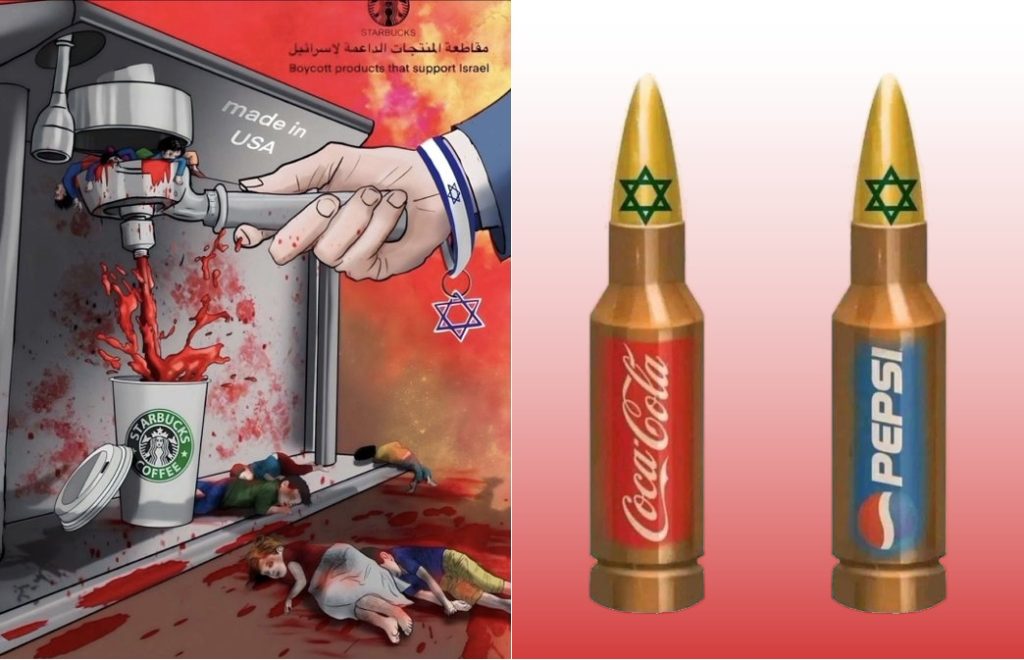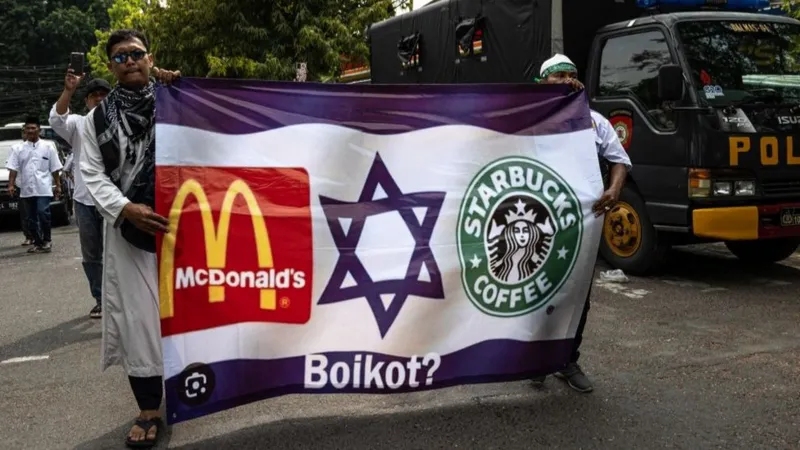OCCUPIED JERUSALEM, (PIC)
As Israel launched its war of extermination on Gaza, the voices of solidarity have risen to condemn this aggression and call for support for the people in Gaza. With the blockade tightly enforced on the enclave, making it impossible to deliver aid or weapons for the Palestinians to defend themselves, boycott campaigns against the occupation and its supporters have emerged as a viable option for people around the world to express their political stance in support of Palestine.
Boycotts have become a tool to isolate Israel and its economy, applying pressure on governments and companies that support it. They are the “peaceful” weapon in the hands of those in solidarity with the Palestinian people, helping to alleviate the oppression and stop the Israeli aggression on Gaza.
According to published reports, these boycotts have been effective, economically impacting Israel and its supporting companies, evident from the losses suffered, the closure of several branches of these companies, and the layoffs of thousands of employees.
Boycotting as resistance
Boycotting brands that support the Israeli economy gained significant traction in the Arab and Muslim world after the aggressive war on Gaza. Some companies, such as “Starbucks” and “McDonald’s,” became global symbols of this movement. Writer Ibrahim Alloush believes that the intensity of the killing and destruction in Gaza, along with the brutal actions of the Israelis, awakened the consciences of the Arab and Muslim nations, fueling the boycott campaigns.
Social media has also played a significant role in promoting the boycotts, sharing the crimes of Israel and educating people on the impact of boycotts. However, the resilience of the people of Gaza remains the central force driving global solidarity, turning boycotting into a political message against Israeli aggression and its supporters.
Alloush explains that targeting brands supporting the Israeli economy is a safe method to send a political message without engaging in direct conflict with governing authorities. No one can force you to patronize a business linked to the Israeli economy, making boycott an effective way to resist without participating in political or partisan activities. It’s a simple and ethical question: “Is it right to spend money knowing some of it will go to those who kill us and occupy our land or those who support them?”

Supporting national products
Since the start of the Israeli assault on Gaza, Palestinians in the West Bank have actively participated in boycotting Israeli products. Their previous experience in this during the intifada has proven useful. As a result, Palestinians have increasingly turned to their national products, which have become competitive with, and even surpassed, Israeli goods, according to observers and experts.
The Palestinian Ministry of Economy has reported that the quality of local products has increased demand, despite the general decline in purchasing power. As a result, Palestinian products now occupy a significant share of the market, with many Israeli products nearly disappearing from shelves.
Local products have flourished, especially in sectors like dairy, furniture, plastics, and pharmaceuticals. For instance, the dairy sector now meets 85% of the market demand, furniture 85%, plastics 75%, and pharmaceuticals more than 55%. The boycott has led to a reduction of more than 50% in Palestinian consumption of Israeli goods.
Losses of boycotted companies
Amid the ongoing Israeli aggression on Gaza, numerous websites have published lists of companies linked to the Israeli occupation or those showing support for Israel, calling for their boycott. This initiative has gained global support, particularly in Arab and Muslim countries.
Among the most targeted companies is Starbucks, which faced public backlash after issuing a statement condemning a tweet of solidarity with Palestine by its workers’ union. Following this, calls for a boycott increased from around 3,200 posts a month to approximately 466,000 monthly posts, according to a report by Bloomberg in February 2024. Starbucks saw its sales slump, especially in the Arab and Muslim world, forcing the closure of several branches and leading to the loss of around $11 billion in market value.
Another targeted company is McDonald’s, which bragged about distributing 100,000 free meals to Israeli soldiers during the Gaza assault. The boycott cost McDonald’s around $7 billion in market value in the early months of the campaign.
Other companies like Carrefour, Nestlé, Pepsi, and more also faced boycotts after incidents like the celebration of Palestinian leader Ismail Haneyya’s assassination by Carrefour employees in Israel. This triggered renewed calls for boycotting these companies, with major corporations in the food and beverage sector being hit hard.
The boycott movement has also extended to brands like Burger King, KFC, Pizza Hut, Coca-Cola, Zara, and Puma, many of which have close ties to the Israeli economy or have openly expressed support for Israel. For example, Americana Group, which operates franchises of KFC and Pizza Hut in the Arab world, announced that its profits had halved in the first quarter of 2024 compared to the same period in 2023 due to the boycott.
Some companies have taken action in response to the boycott. For instance, Puma announced that it would not renew its sponsorship of the Israeli Football Association, and Ben & Jerry’s called for an immediate ceasefire in Gaza.
The boycott has proven its effectiveness in economically and politically pressuring companies that support the Israeli occupation. For it to remain a potent tool, however, it needs to become ingrained in society’s culture, not just a seasonal reaction.















